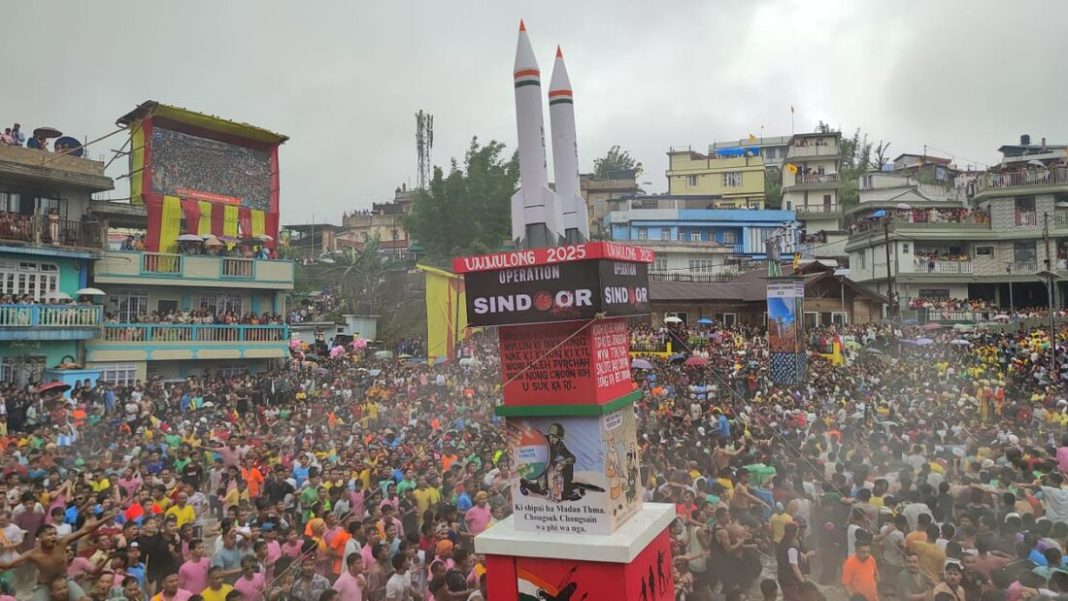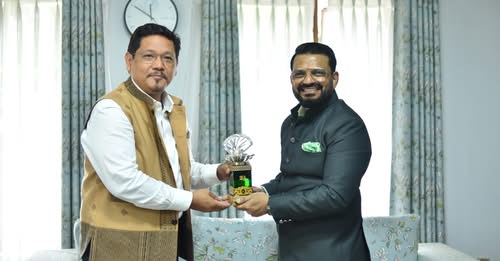Shillong, July 14: Thousands of Niamtre faithful of the Pnar community in Jaintia Hills converged at Jowai to witness the concluding ritual of the annual four-day Behdienkhlam festival.
As hundreds watched, the revellers gathered in the mud-filled ‘Aitnar’ making ritualistic gestures.
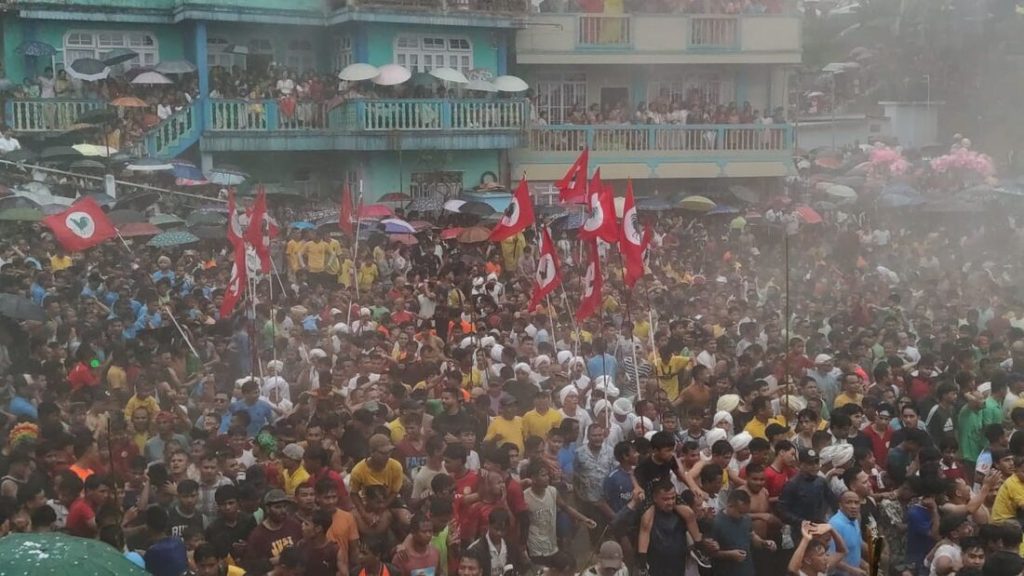
With ‘Beh Dien’ meaning drive away and ‘Khlam’ meaning plague or pestilence, Behdienkhlam is celebrated to overcome the destructive forces of nature, drive away social evils including diseases, and invoke God’s blessings for a good harvest.
Considered one of the biggest festivals of Jaintia Hills, Behdienkhlam is celebrated in mid-July after the sowing season is over.
Key feature of the festival is making of “Dein Khlam” and “Khnong”, which are rounded, polished and straight tree trunks, felled from a forest.
The trunks are brought to Jowai town with great fanfare.
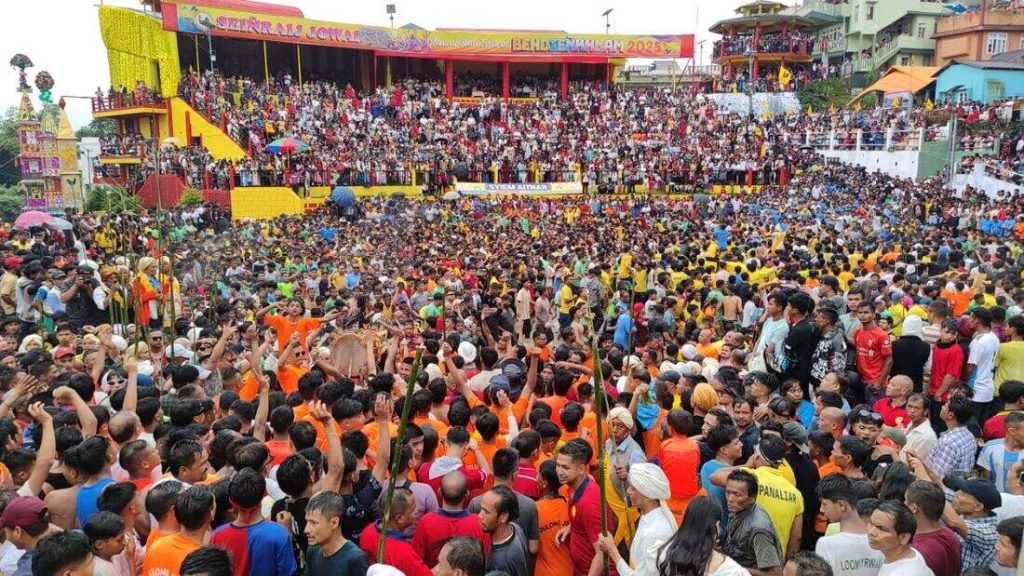
Early on Monday, ‘Symbud Khnong’, a log of great length, was brought with thousands of people thronging to get a chance to touch it.
It is believed that by touching the Khnong, it will protect them from all sorts of sicknesses besides bringing prosperity in their works and businesses.
Meanwhile, youth from different localities of Jowai town tried out their artistic skills by erecting gaily coloured ‘rots’, 10-40 feet tall structures built of bamboo, coloured paper and tinsel.
The ‘rots’ on display at ‘Aitnar’, the sacred pool, carry strong messages for preservation and protection of the environment and the mother earth besides importance of combating social evils.

One of the rots that drew attention was on Operation Sindoor and the need to “de-addict Pakistan from its terrorism habit”.
The other rots wore messages about “digital addiction” with appeal to ensure “it guides us not blind us”, warning against rise of artificial intelligence, saying, “AAAAIIIII – made by man has outsmarted the master creating perfections beyond the normal possibility…totally out of this world!!!
The climax of the celebrations is the carrying of a large trunk known as ‘Khnong’ by the Niamtre faithful to Aitnar.
Religious rites and sacrifices at the sacred pool precede the immersion ceremony in the early hours of the morning.
The festival was also witnessed by deputy chief minister Sniawbhalang Dhar, lone Rajya Sabha MP WR Kharlukhi, health minister Ampareen Lyngdoh, revenue & disaster management minister Kyrmen Shylla, Jowai MLA Wailadmiki Shylla, South Shillong MLA Sanbor Shullai besides other dignitaries.
Speaking on the occasion, Dhar, expressed pride in the festival’s ability to bring people together, transcending religious boundaries.
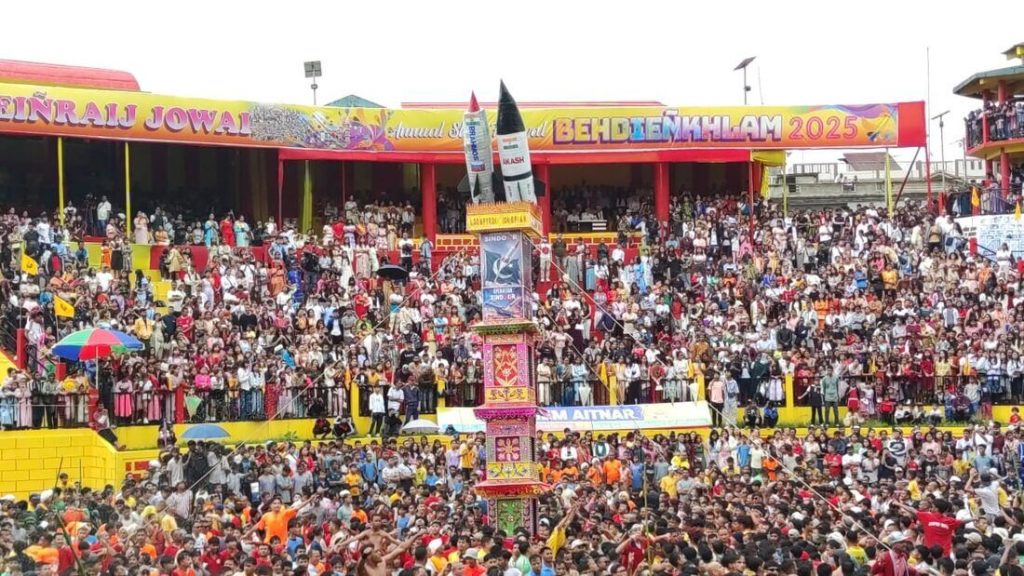
He highlighted the importance of unity in making the festival a success, thanking people from different religions for participating in the celebrations.
He also commended the growing strength of the festival, which is celebrated in various places.
Meanwhile, he thanked chief minister Conrad K Sangma for his support in improving the sacred pool, a significant aspect of the festival.
Dr WR Kharlukhi, in his speech, expressed pride in the transformation witnessed in Jowai.

In the evening ‘datlawakor’, a football match was played with a rounded wooden ball between two teams from upper and lower valleys of Myntdu river.
Winning side of the football match, which has the local dolloi (traditional chief) as referee, is believed to be blessed with a good harvest of the year.

